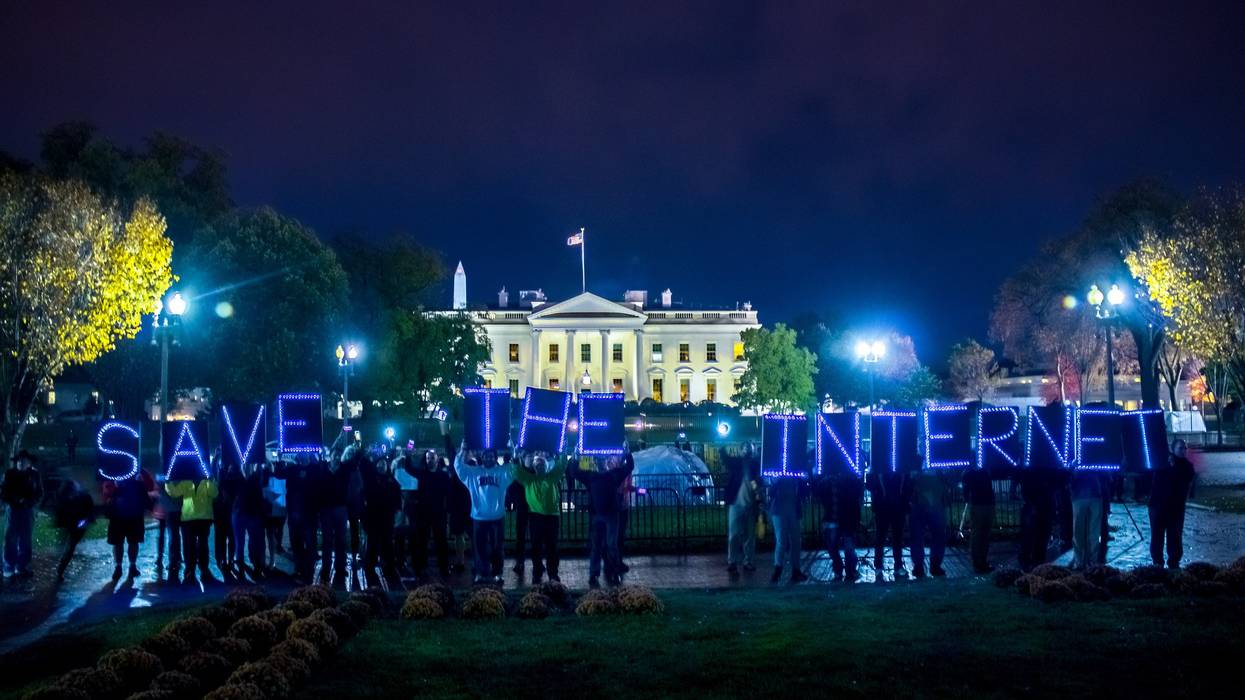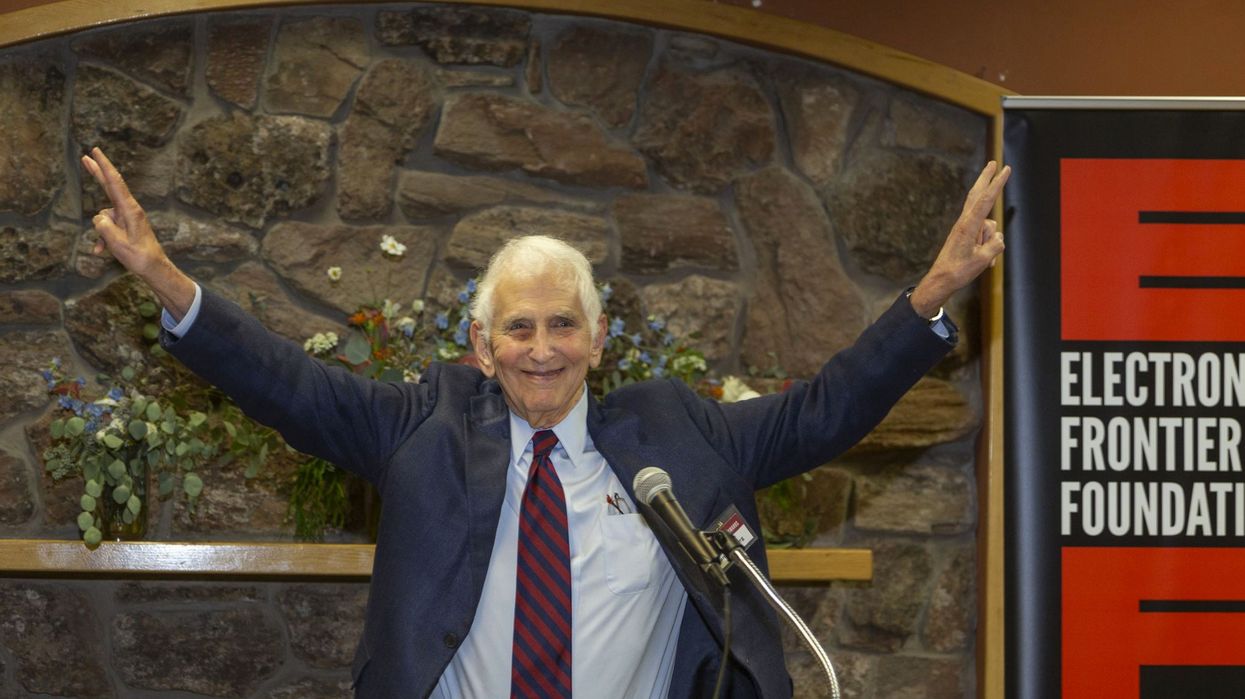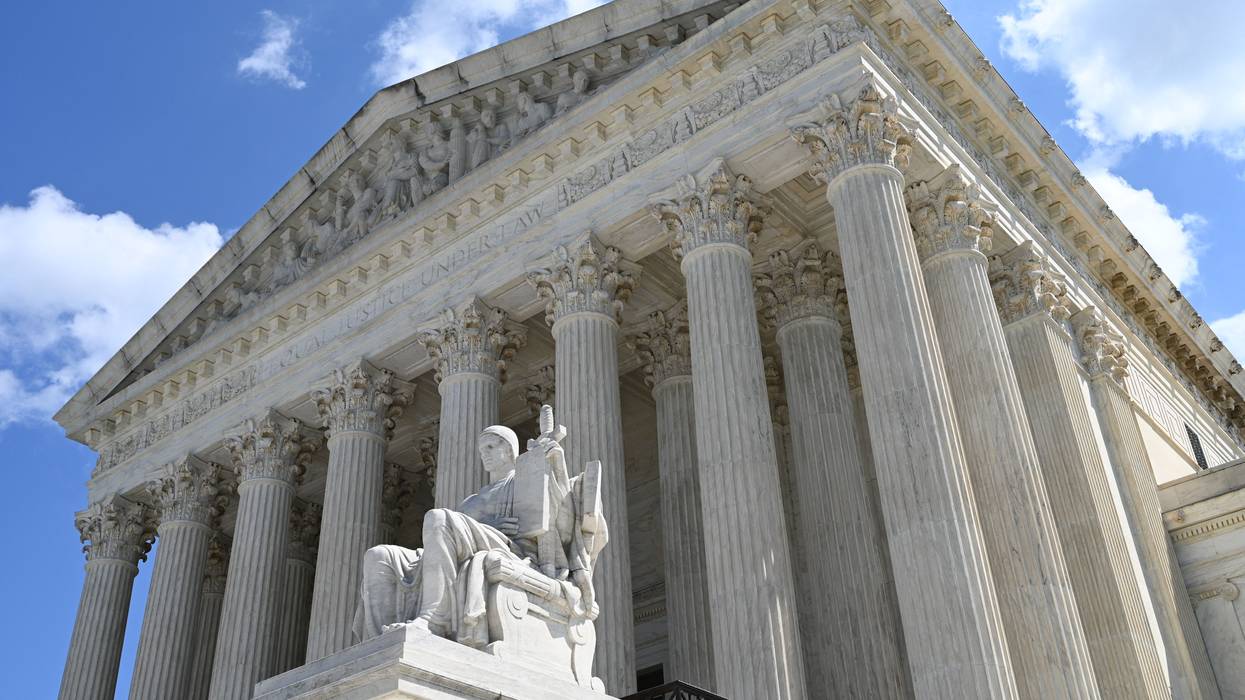Digital Rights Groups Launch Week of Action Against 'Bad Internet Bills'
The coalition is "demanding that Congress focus on passing badly needed comprehensive privacy legislation to actually protect us from the harms of Big Tech companies and data brokers."
A coalition of digital rights groups is sounding the alarm as U.S. lawmakers try "to push through a swarm of harmful internet bills that would severely impact human rights, expand surveillance, and enable censorship" online by launching a week of action Thursday to demand Congress pass comprehensive data privacy legislation instead.
Groups including Fight for the Future, Electronic Frontier Foundation (EFF), and the ACLU kicked off the weeklong campaign against #BadInternetBills with a call to action for activists and a vow to "get loud about our opposition" to five bills and "demanding that Congress focus on passing badly needed comprehensive privacy legislation to actually protect us from the harms of Big Tech companies and data brokers, instead of pushing through misguided legislation before August congressional recess."
During the week of action, participants will "drive emails and phone calls to legislators and urge influencers and online communities to speak out against misguided legislation," including:
- The Kids Online Safety Act (KOSA), which gives state attorneys general the power to censor speech related to LGBTQ+ issues and abortion rights;
- The Eliminating Abusive and Rampant Neglect of Interactive Technologies (EARN IT) Act which threatens the availability of end-to-end encryption, and opens the doors to widespread censorship;
- Strengthening Transparency and Obligation to Protect Children Suffering from Abuse and Mistreatment (STOP CSAM) Act, which fails to address the scourge of online child exploitation, while threatening encryption, much like the EARN IT Act would;
- The Cooper Davis Act, which would punish communications providers that encrypt your communications and co-opts those companies for increased government surveillance of marginalized communities; and
- The Restricting the Emergence of Security Threats that Risk Information and Communications Technology (RESTRICT) Act, a measure to grant the government extraordinary power to censor apps.
Opponents say the 2018 law known as SESTA/FOSTA has forced sex workers—both voluntary and trafficked—"offline and into harm's way," according to a May plea from more than 100 groups warning of the privacy and other risks of the EARN IT Act.
"Let's be clear: These bills would create a clear avenue to remove important, protected speech from the internet, and our ability to communicate without the government seeing," the group stressed.
"These bills also create an outsized risk that any user-posted speech with even vague ties to sex and sexuality, including speech on reproductive, sex worker, and LGBTQ+ rights will be removed," the ACLU added.
EFF argued: "The Cooper Davis Act would turn some of the most popular online platforms into Drug Enforcement Administration informants. The content-scanning tools that would likely be used have large error rates, and would sweep up innocent conversations, including discussions about past drug use or treatment."
"This bill contains no warrant requirement, no required notice, and limited user protections, and deserves to be defeated on the Senate floor," the organization added.


